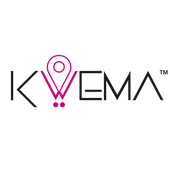At the beginning of the pandemic, the largest meat supply company experienced one of the most deadly COVID-19 outbreaks at its plant in Greeley, Colorado. Over 300 employees were infected resulting in six deaths. In June, a different outbreak was reported from another food processor company. At this company, 815 workers tested positive for COVID-19 at its plants in Iowa.
According to the Food and Environment Reporting Network, COVID-19 has spread to more than 500 meatpacking plants across the US. This spread has lead to more than 50,000 meatpacking workers testing positive for the virus and 347 dying as a result. But the impact of COVID-19 not only affects employees.
Data from a study published in the PNAS magazine shows that 6-8% of all COVID-19 cases and 3-4% of all deaths in the US are associated with proximity to meatpacking plants. The study suggests that these facilities acted as “transmission vectors” and “accelerated the spread of the virus” in the early stage of the pandemic.
Different factors put meatpacking workers at risk of contracting COVID-19 easily. For instance, working for prolonged shifts (8-12 hours) in closed spaces with coworkers, sharing work areas, sharing transportation, congregating housing, and talking more loudly or shouting due to noisy machinery. Moreover, there can be poor working conditions in plants including the lack of proper ventilation systems, protective shields between workstations, and proper PPE.
To help employers in the food processing industry to reduce the exposure of COVID-19 at their workplace, we have summarized some key strategies based on the CDC and OSHA guidelines that you can place to protect workers’ health:
- Ensure appropriate distance. Modify the alignment of workstations by installing physical barriers along the production line to separate workers from each other. Also, possibly implement marked signs to remind workers to maintain a safe distance while working or on breaks. Ideally, workers should not face one another.
- Educate and promote hygiene protocols. Employees must be informed about how coronavirus is spread, recognize symptoms and following sneeze and cough etiquette. If it’s possible, consider installing multiple handwashing or hand sanitizing stations on the plant, preferably the ones that are touch free.
- Consider monitoring workers’ symptoms. Another key measure to maintain a healthy workplace is conducting formal health-checks procedures before employees enter into the facilities and in shared transportation.
- Make adjustments in work schedules. Stagger worker’s breaks and clock in/out times in order to avoid congregations in common areas.
- Promote safety practices among employees. Encourage them cleaning and disinfecting their work areas, avoiding carpooling and sharing equipment and tools, as well as to stay at home if they feel sick.
As we previously mentioned, meatpacking plants can become potential places with higher COVID-19 transmissions, especially if employees perform activities in a closed environment where people are in close contact for a long period. The best measure to prevent potential outbreaks at your workplace is identifying COVID-19 cases and any person who was in contact with them as soon as possible.
Kwema helps to prevent potential COVID-19 outbreaks with Contact Tracing functionality. If someone is diagnosed positive for COVID-19, our technology allows you to trace where the employee was, identify who they may have come into contact with and classify all employees into 3 groups of risk and take action to prevent spread.
Watch how Kwema is disrupting workplace safety
Photo by Henar Langa on Unsplash
